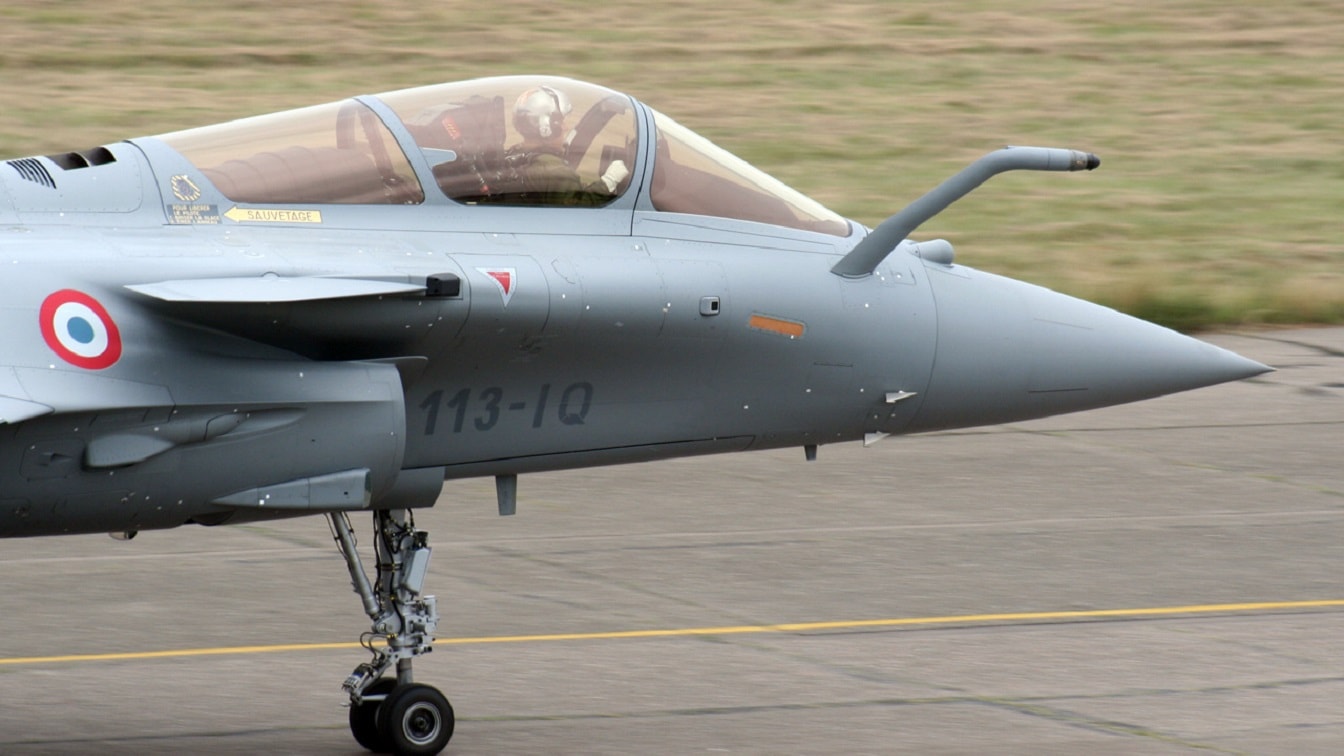France Could Be First Nation to Send Warplanes to Ukraine – Amid rumors that the United States may eventually provide Ukraine with the F-16 fighter jets it has spent the last year requesting, French President Emmanuel Macron suggested on Monday that France hasn’t ruled out sending fighter jets to Kyiv.
(Subscribe to Our YouTube Channel Here. 19FortyFive publishes original videos every day.)
The news comes as Western leaders express greater openness to the idea of sending warplanes, advanced weapons, and tanks to Ukraine following almost a year of concern over escalating the conflict.
France has already sent Ukraine rocket launchers, air-defense systems, and other pieces of advanced weaponry, but the French government – in lockstep with all other Western allies of Ukraine – has refrained from sending fighter jets.
France has also not agreed to send main battle tanks to Ukraine, even after the United States, United Kingdom, Germany, and Poland all agreed to do so.
Why France Could Send Fighter Jets to Ukraine
President Macron’s comments came during a press conference in The Hague on Monday, and while the French president expressed willingness to send warplanes, he also laid out a number of conditions that must be met before the planes are sent.
Specifically, Macron stated that France would first need to be certain that sending the planes would not be used to “touch Russian soil,” indicating that France – much like every other ally helping Ukraine – wants to ensure that French weapons will not be used to launch strikes on Russian soil.
While the move would ultimately be an attack by Ukraine, the use of French weapons could make France a target for Russia.
Furthermore, Macron said that he must first be certain that sending warplanes would not “weaken the capacities of the French army,” suggesting that investigations are underway to determine the impact of sending French warplanes.
“No Requests” for F-16s Yet
During the same press conference, Dutch Prime Minister Mark Rutte responded to rumors that Ukraine was looking for F-16 fighter jets and insisted that no requests have been made so far.
“There is no talk about delivering F-16s to Ukraine. No requests,” Rutte said, adding that there would be “no taboos” about sending them, even though it would be a “very big next step.”
“It is very important we keep supporting Ukraine and that Ukraine articulates to us what they need,” Rutte said.
The comments appeared to suggest that the Netherlands is willing to send the jets, but that Ukraine must first make a formal request. The comments could also have been made strategically to encourage the United States to make the first move, much in the same way that the German government held out on agreeing to send German-made tanks to Ukraine until the United States approved of the decision.
Rutte also praised the decision by Germany to send Leopard 2 tanks and said that his country was prepared to buy more of the tanks – which the Dutch military presently leases – and send them to Ukraine too.
MORE: Why Putin Fears the M1 Abrams Tank
MORE: I Went to War in the Leopard 2 Tank Ukraine Wants
MORE: World War III – Where Could It Start?
MORE: A U.S.-China War Over Taiwan Would Be Bloody
Jack Buckby is 19FortyFive’s Breaking News Editor. He is a British author, counter-extremism researcher, and journalist based in New York. Reporting on the U.K., Europe, and the U.S., he works to analyze and understand left-wing and right-wing radicalization, and reports on Western governments’ approaches to the pressing issues of today. His books and research papers explore these themes and propose pragmatic solutions to our increasingly polarized society.

